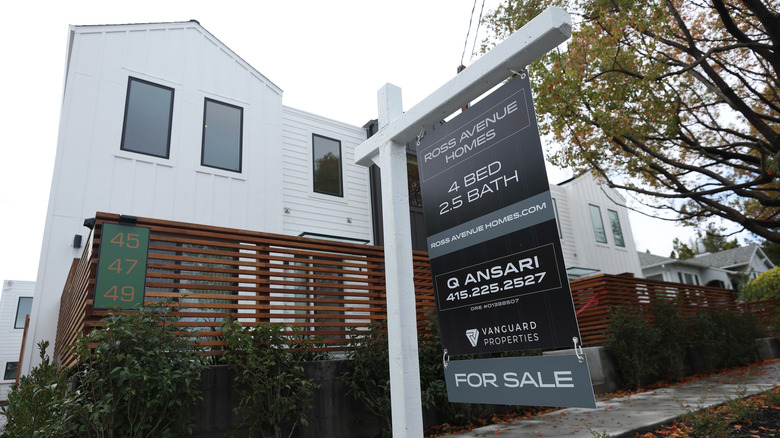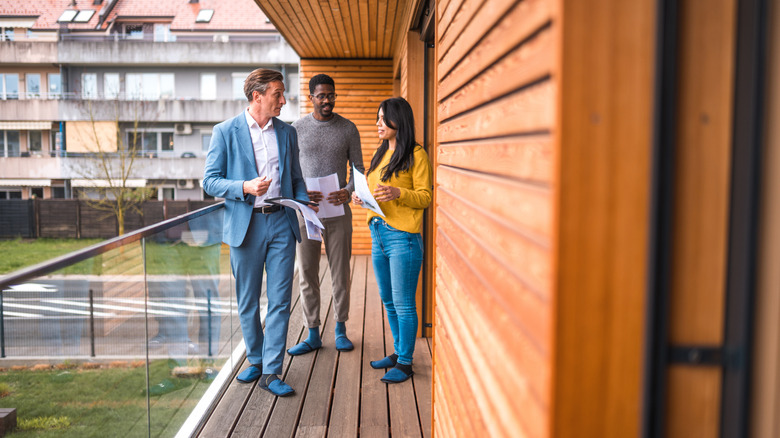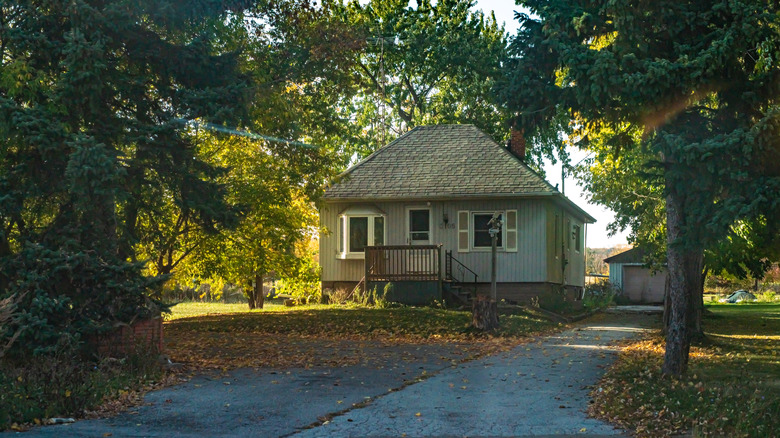Is Finding A Starter Home A Lost Cause For New Homebuyers? Tips That Can Help
In today's housing market, the idea of buying a starter home feels less like an attainable milestone and more like an urban myth. For many first-time buyers scrolling endlessly through Zillow listings, every affordable house seems to come with a catch. It's in the wrong location. The layout makes no sense. Or the price tag assumes you're independently wealthy instead of struggling to pay off your student debt. According to Joy Aumann, licensed realtor (CIPS), interior designer, and co-founder of LUXURYSOCALREALTY, although affordability and inventory challenges are real, setting realistic expectations and remaining patient can turn your starter home search from a lost cause into property ownership that puts you on the path toward long-term financial stability.
"Unsurprisingly, for most first-time buyers, the biggest challenge is affordability," Aumann told House Digest during an exclusive interview. "Prices have risen sharply over the past several years, and even homes that used to be considered entry-level now come with price tags that stretch beyond most budgets." The real estate expert added that inflation outpacing wages and high interest rates are also contributing to the affordability crisis. "Even if a buyer saves for a down payment, the monthly payment can still push them out of the market."
"Inventory is another hurdle," Aumann said. Because builders make more money from larger homes, there aren't nearly as many smaller, affordable homes being built. "When a good one does hit the market, the competition is fierce."
The starter home market has shifted
"A starter home used to mean a small single-family house in a decent neighborhood that a first-time buyer could afford," Joy Aumann said during her exclusive interview with House Digest. "Those homes are rare now, especially in major metros and coastal areas." According to the real estate expert, prices have increased so significantly that what used to be considered a mid-range home is considered a starter today. In fact, it could be said that what qualifies as a starter home has changed altogether. "In many areas, buyers are turning to condos or townhomes because single-family homes are out of reach," Aumann explained, adding that some first-time buyers eager to own instead of rent are forced to consider manufactured or modular homes instead. Although increased inventory is among the housing trends that are good news for anyone buying in 2025, Aumann cautioned that more listings doesn't necessarily translate into more affordability. "Builders have not returned to producing smaller homes in large numbers, and that is a key reason the market looks the way it does today."
Like the starter home market itself, the typical buyer has also changed drastically. Aumann said the average first-time buyer is likely to be older, having waited longer to purchase a home than in decades past. "Many younger buyers are still paying off loans or working on building credit, which can make qualifying tougher," the real estate expert said. Additional homeownership expenses like insurance and property taxes only add to the burden. "It is not just the mortgage that matters anymore; it is the full cost of owning."
What to keep in mind if you're a first-time buyer
It's still possible for new home buyers to find a starter home they can afford, but according to Joy Aumann, it takes plenty of patience, flexibility, and strategy. "The market is tough, especially in higher-cost areas, but there are still opportunities," she told House Digest during her exclusive interview. You'll have the best luck by staying open to a variety of neighborhoods and property types. "That might mean considering a condo instead of a house, or looking a little farther from the city center," Aumann said. Buying a fixer upper that requires some DIY renovations, or considering emerging areas instead of fully developed ones are other ways to stretch your budget.
It's important to keep your expectations realistic. "The idea of a turnkey three-bedroom house in a prime area for an entry-level price just is not the norm anymore," Aumann explained. But reassuringly, she said smaller, older, and more remote homes can all work well as starters. "It is about finding something you can comfortably afford and grow from."
Before you even start looking, there are some important factors to identify before buying a home. Along with your preferred neighborhood and, of course, your price range, you should also consider what shops, schools, and services are nearby, whether the location will require additional insurance coverage, and what amenities are essential. You'll also want to ensure your monthly budget can accommodate local taxes, HOA fees, or other costs of homeownership.
How to improve your odds of finding a starter home
According to Joy Aumann, there are several ways new homebuyers can improve their odds of finding a starter home. "A starter home is a stepping stone, not the finish line," she said during her exclusive interview with House Digest. "Even a modest property can turn into a great investment if you hold it long enough." Before venturing into the real estate market, Aumann recommended cleaning up any credit issues, paying down your debt, and getting preapproved before you start looking. "Knowing exactly what you can afford helps you act quickly when the right home shows up," she explained.
Flexibility is equally important. "A condo, townhouse, or home that needs a few updates can be a great way to get in the door ... Focus on solid bones, good location potential, and overall value, rather than finishes or amenities that can be upgraded later," Aumann suggsted. To ensure you're making strong offers on the right properties, she also urged buyers to do their due diligence. While it's legal for a home to be sold without getting an inspection, skipping one in a rush to the closing table can lead to costly surprises.
"Finally, remember that buying your first home does not have to be perfect. Once you are in, you are building equity instead of paying rent, and that is the first step toward long-term financial stability," Aumann advised. She warned that waiting for the perfect interest rate or price can mean missing out on great opportunities. "Focus on when you are financially and personally ready, not on predicting what the market will do next."



